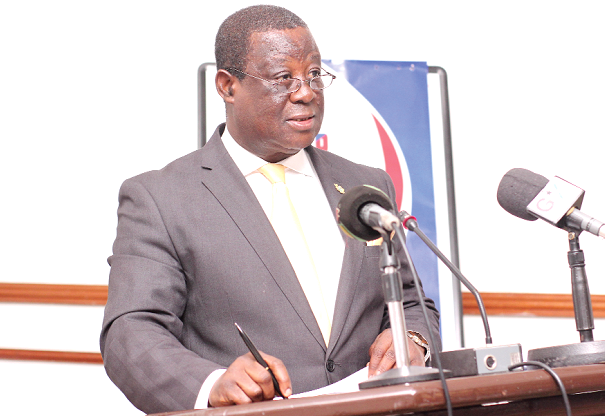
$23m mobilised for Abidjan-Lagos Corridor feasibility studies
Ghana and four other West African countries have mobilised $23 million to pave the way for the conduct of feasibility studies for the Abidjan-Lagos Corridor (ALC) Highway Development Project, the Commissioner of Infrastructure of the ECOWAS Commission, Dr Antoinette G. Weeks, has disclosed.
Advertisement
She said the three-lane, dual carriage highway would cost $3 billion.
Ghana has annexed almost 600 kilometres of the 1,028 kilometres of the proposed road network.
The other countries are Togo, Bénin, Côte d’Ivoire and Nigeria.
Dr Weeks disclosed this to the Daily Graphic after the opening of the eighth Experts Meeting of the Abidjan-Lagos Corridor Highway Development Programme in Accra yesterday.
The meeting was aimed at undertaking a detailed revision of the progress made on all components of the project and suggest ways of expediting the implementation.
In addition to the technical components, the meeting will also review where member states are with the ratification of the project treaty and the signing of their respective African Development Bank (AfDB) loan and grant agreements for the ALC development programme.
Dr Weeks said the feasibility and design study was being funded by the AfDB and was expected to last for 18 months.
She further disclosed that the first phase of the project would start in the last quarter of 2017.
{loadmodule mod_banners,Nativead1}
Achievements
Dr Weeks noted that following a meeting in Lome, Togo in March 2017 to review the progress of implementation of the project, some modest but remarkable achievements had been recorded collectively.
Notable among them, she said, was the completion of the study on the legal and institutional framework documents for the establishment of the supranational corridor management authority for the ALC.
She further stated that the Trade and Integration Department of the AfDB had also championed a study on the needs assessment of trade and transport facilitation along the ALC to serve as the basis for developing and implementing trade and transport facilitation interventions along the corridor.
Addressing the meeting, the Minister of Roads and Highways, Mr Kwasi Amoako-Atta, urged the participants to seek the interest of the ordinary ECOWAS community citizen “whose life we seek to touch and positively impact by this project.”
Viable trading corridor
He said the ALC constituted the most viable trading corridor section of the Trans-West African Highway network and its development would also facilitate tourism along the corridor and further deepen regional integration.
“Considering the immense benefits to be derived from this project, we are convinced, without a doubt, that the regional approach is the best way to implement a project of such magnitude,” he noted.
He, nonetheless, conceded that although the development of the corridor would offer various economic, technological and resource utilisation benefits, it would also bring along some implementation challenges, and for that reason the project required a wider perspective on issues for the broader good.
“The fullest cooperation and commitment of all stakeholders and immense political will are required on all sides to ensure a successful execution,” Mr Amoako-Atta added.



